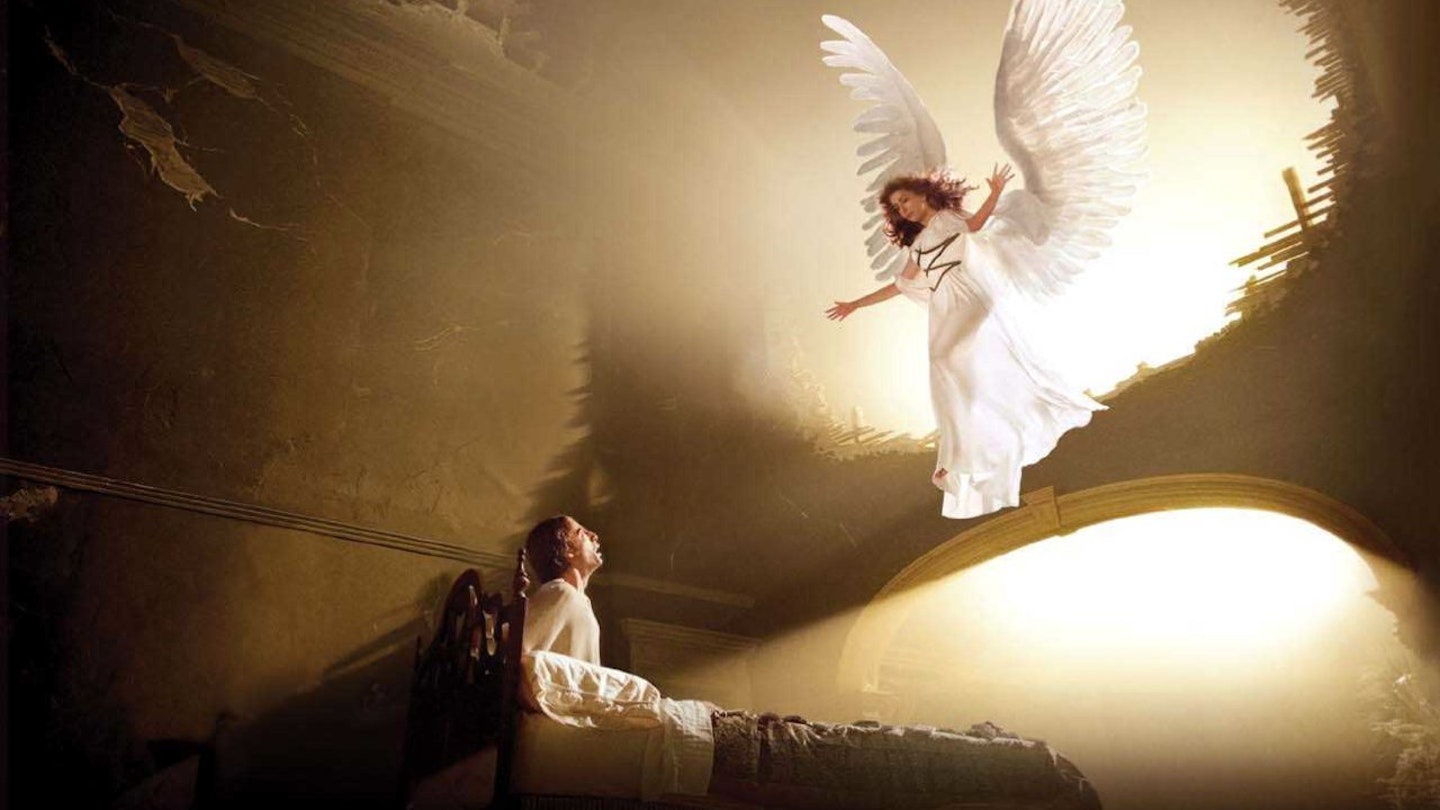Tony Kushners two-part play an emotional epic about AIDS, death, sex, religion and politics set in the 1980s was hailed as a major work of 20th century American theatre.
With a teleplay by Kushner, brilliant direction by Mike Nichols, a $60 million budget from HBO and a dream cast (Al Pacino making his television debut and working for the first time with Meryl Streep), its unsurprising that the near-six-hour adaptation gave TV critics orgasms. So far, kudos includes a record 21 nominations for this months Emmys, seven of them for the actors. So is it great? Yes, pretty much. Its real event TV, and the kind of ambitious artistic achievement that the increasingly trashy medium desperately needs.
The plot has three main strands that interweave. In 1985, Prior Walter (Justin Kirk) is diagnosed with AIDS and his self-pitying lover Louis (Ben Shenkman) deserts him; Prior begins having wondrous visions of an angel (a sensational Emma Thompson). She greets him as a prophet and heralds great work. Powerful lawyer Roy Cohn (Pacino) tempts wide-eyed Mormon and closeted gay Joe Pitt (Patrick Wilson) to the dark side before being hospitalised with AIDS. Joe and Louis get it on while Joes pill-popping wife Harper (Mary-Louise Parker) hallucinates imaginary friend Mr. Lies (Jeffrey Wright). Then Joes mother Hannah (Streep) arrives to sort things out. Characters paths cross, with Streep, Thompson and Wright each playing multiple roles.
Some stories are more compelling than others. The strange journey of Prior, dying, mad as hell about it but irrepressibly funny, is tops. Parkers whiney depression invites fast-forwarding, and Pacino is just too much, ranting and bellowing as only he can (with the excuse of being breathtakingly evil), but deathbed confrontations between Pacinos unrepentant Cohn, the ghost of Ethel Rosenberg (Streep) and his camp, combative nurse (Wright) are highlights. Nichols effects a heady mix of theatre spectacle and cinematic style in some thrilling, extraordinarily beautiful sequences, resulting in a poetic, compassionate, ultimately hopeful work about the human condition at the turn of the millennium.
